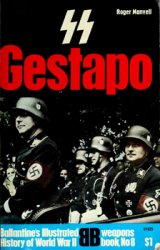SVETLANA SAVRANSKAYA AND WILLIAM TAUBMAN
The span of Soviet foreign policy that is the subject of this chapter covers two distinct periods, 1962 to 1964, and 1964 to 1975. The first period consists of Nikita Khrushchev’s last three years in power; the second covers the first eleven of Leonid Brezhnev’s. Because of the centralized nature of the Soviet system, with so much power concentrated in the Communist Party Politburo, and especially in the hands of the top party boss, Khrushchev and Brezhnev had immense influence over Soviet policy. But the two men were very different leaders with contrasting approaches to governing: by 1962 the impulsive, explosive Khrushchev hardly listened to his Kremlin colleagues. Brezhnev, on the other hand, had to struggle to consolidate his power for the first few years, and even after that, he preferred to preside over the Politburo instead of dominating it. Moreover, the Brezhnev regime came to power determined to alter, although not entirely reverse, the foreign-policy pattern Khrushchev had followed. It is not surprising, therefore, that the two subperiods are notable for significant differences ofboth substance and style. Yet, there is an overall trend that characterizes the whole period - movement from the Cold War’s most dangerous episode, the 1962 Cuban missile crisis, to the high point of detente in 1975.
This trend reflects various Soviet domestic and international circumstances, which helped to convince both Khrushchev and Brezhnev that the USSR needed more than a short-term respite from the kind of Cold War over which Stalin had presided. Escalating numbers of nuclear weapons on both sides, along with the dangers they posed of a catastrophic war, placed a premium on limiting tensions, while Moscow’s achievement of strategic parity with the United States, obtained under Brezhnev, gave him the confidence to negotiate arms-control agreements from a "position of strength" that Khrushchev lacked. The vulnerability of Soviet allies in Eastern Europe, dramatically visible in Poland and Hungary in 1956, and again in the Prague Spring of 1968, heightened Soviet interest in European detente. In contrast to
Khrushchev, who responded to Chinese charges of being soft on capitalism by getting tough with the United States, Brezhnev moved toward a new relationship of detente with Washington.
The detente achieved by Brezhnev and company stabilized Cold War competition in Europe while braking the arms race and expanding East-West ties. But it contained the seeds of its own eventual disintegration. The growing power and prestige of the USSR, sharply contrasting with America’s retreat from Vietnam, offered new opportunities to expand Soviet power and influence in the Third World. Marxist-Leninist ideology helped to ensure that Moscow would try to exploit those new opportunities, thus seeming to confirm to many in the West that Moscow was engaged in another round of global expansionism. As a result, even as detente reached its peak, it began to unravel.




 World History
World History









